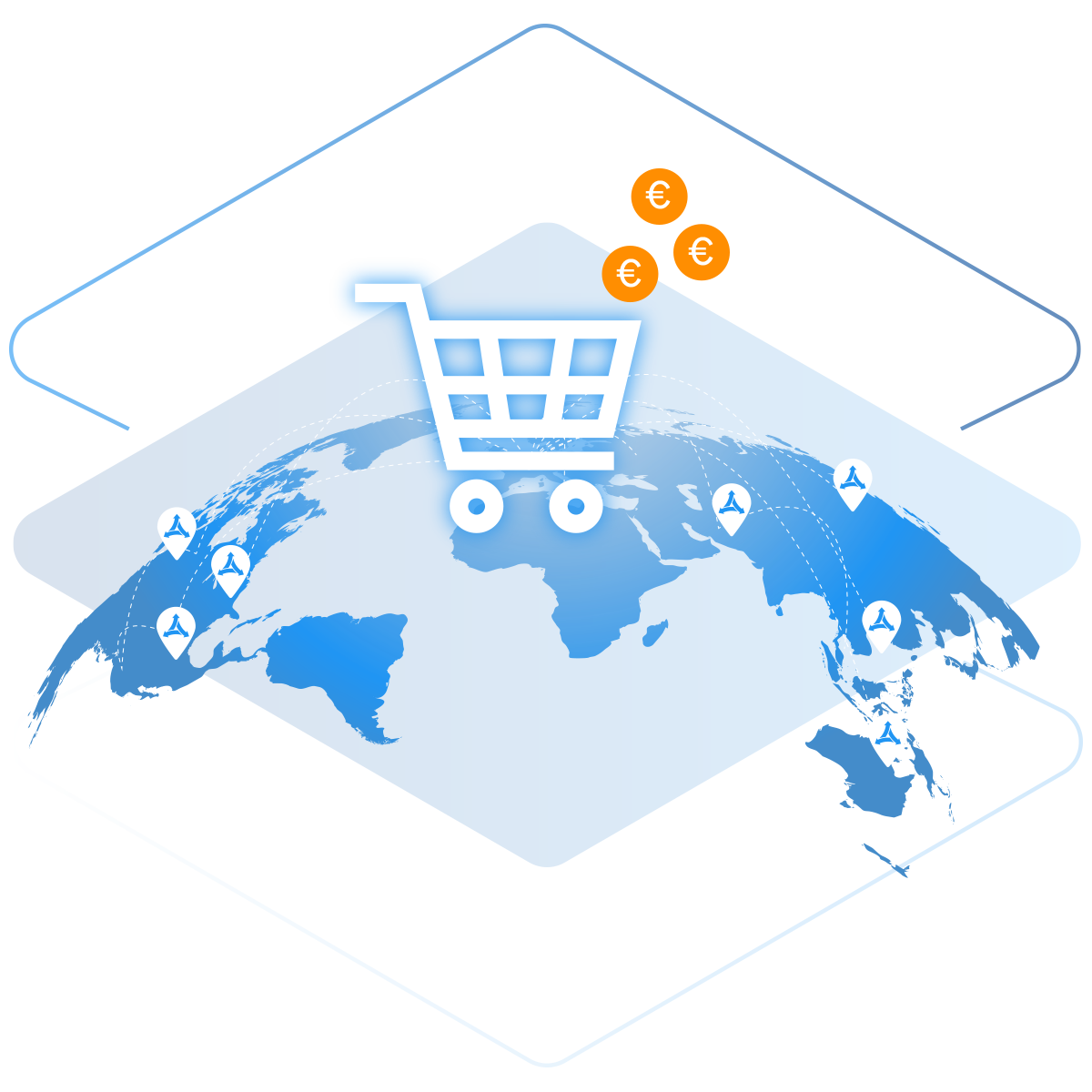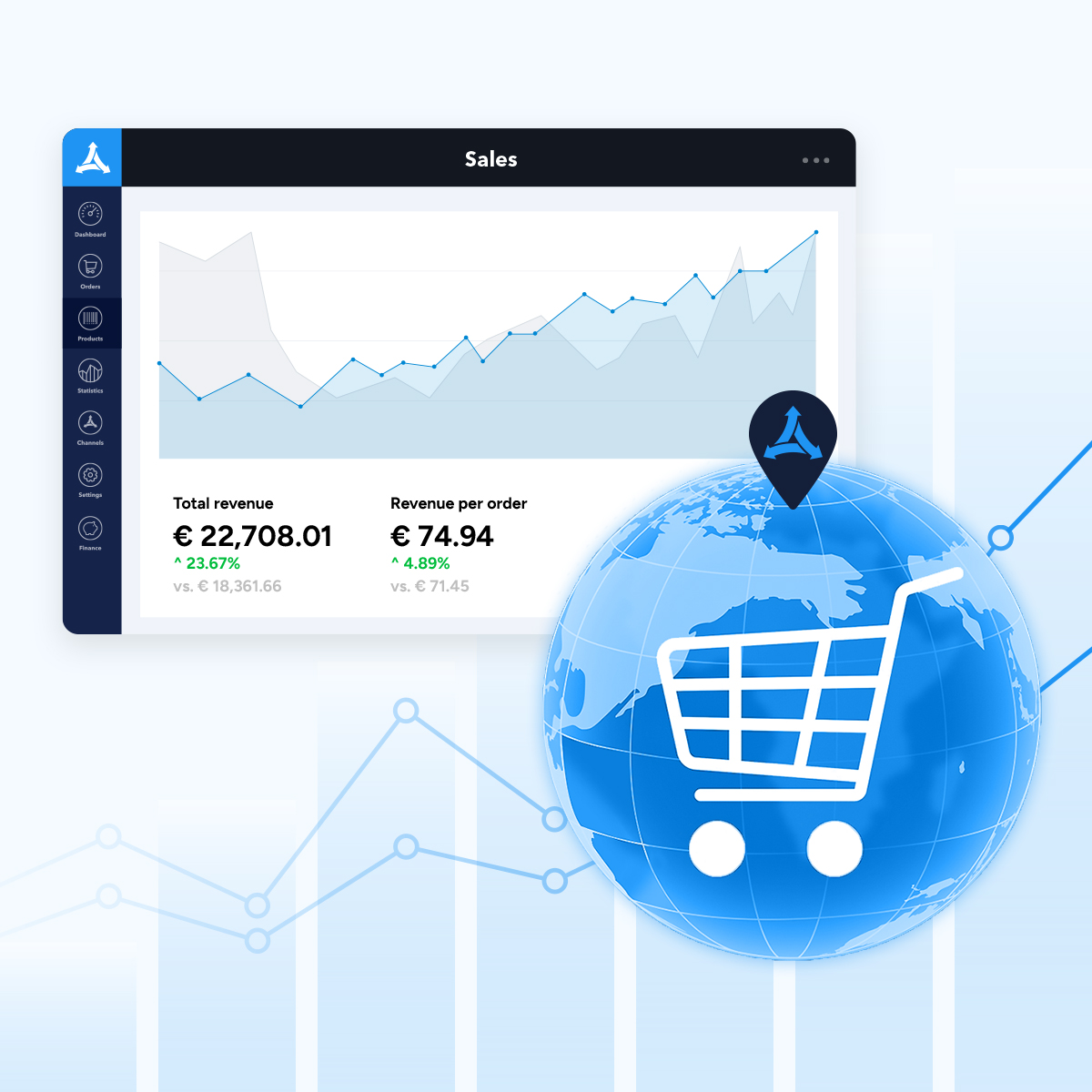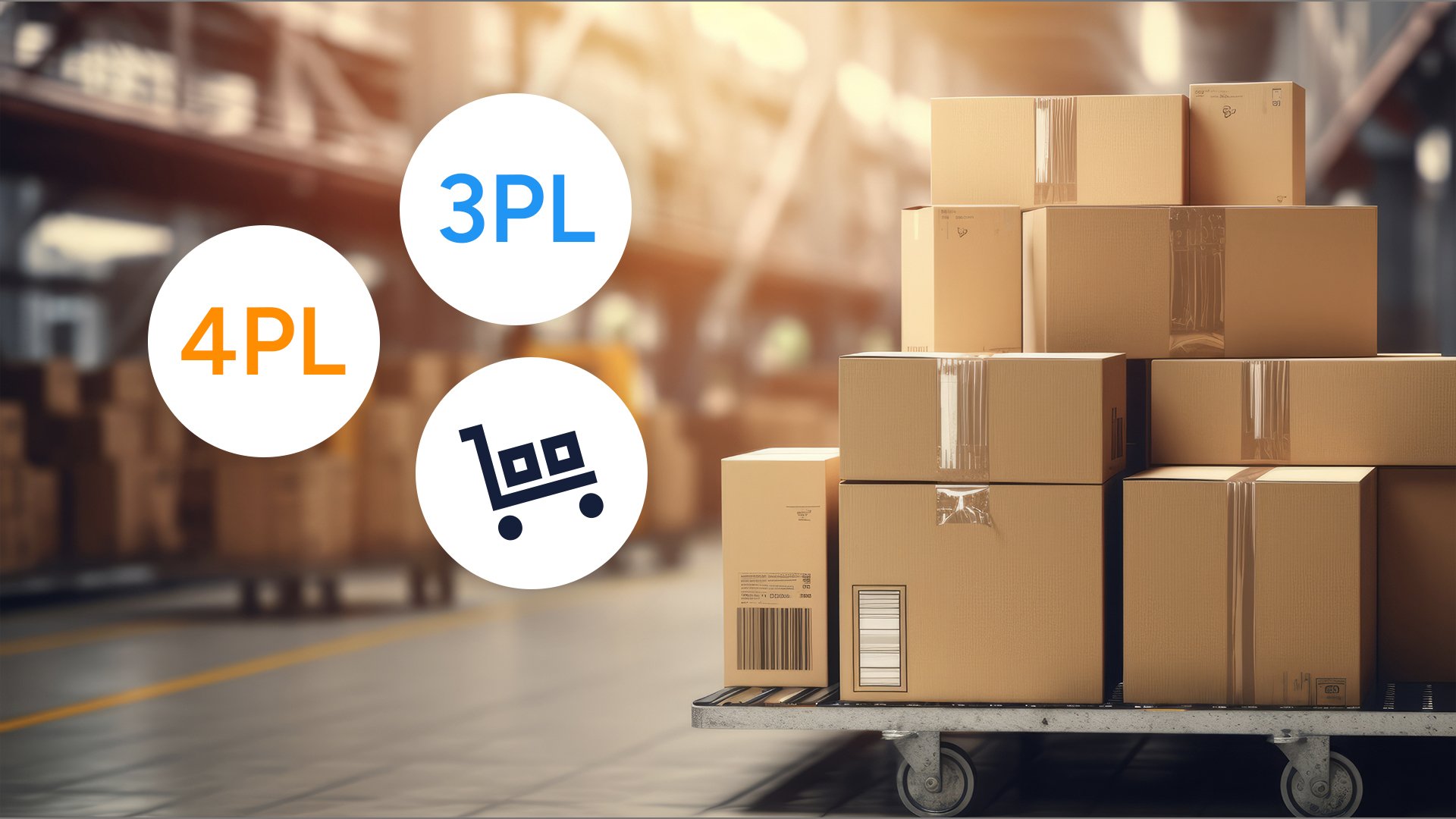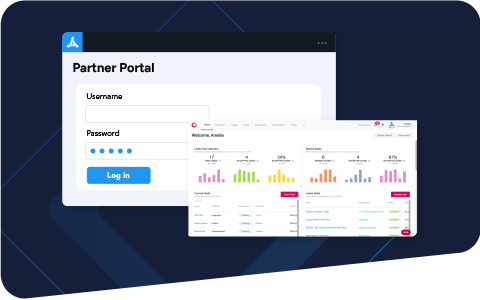-
Home
- Cross Border Ecommerce: Benefits, Challenges & Tips to Succeed
Cross-border ecommerce: the ultimate guide
Cross-border ecommerce offers great opportunities for sellers to expand their market reach and increase sales. However, there are many challenges for brands to overcome. Read on to find out how to tackle them.

How can you scale cross-border?
Cross-border ecommerce is when consumers purchase products online, from brands and retailers outside their home country. 3 out of 4 consumers buy something cross-border each year, and its popularity is rising.
The benefits of cross-border ecommerce
Cross-border selling offers huge benefits for sellers. The most obvious is a much bigger market reach – and this means massive sales growth potential. For example, let’s imagine your brand currently targets consumers in the US; this means you can reach a maximum of 289 million potential buyers[1] in 2027.
By expanding sales to Latin America, you can add another 388 million customers[1]; add China to the mix, and you could reach another 1.3 billion[1] new customers. The benefits of cross-border selling include:
[1] Source: Statista
Experience the benefits of cross-border ecommerce firsthand
Book your free 30-minute consultation with our marketplace experts today!
Challenges of cross-border ecommerce
Selling goods internationally involves some challenges to ensure everything runs smoothly. You need tools that can help manage the challenges of international sales, including the logistics and fulfillment side. This is why marketplace integration software is essential, enabling you to link all your backend systems to one centralized dashboard.
Typical difficulties associated with international ecommerce include:
Overcome the challenges of cross-border ecommerce with ChannelEngine
Book your free 30-minute consultation with our marketplace specialists today!
How is cross-border ecommerce different from regional expansion?
How is cross-border ecommerce different from regional expansion?

Hunkemöller crosses borders with ChannelEngine
Hunkemöller crosses borders with ChannelEngine
Strategic partners help you do more by leveraging their capabilities and connections. They can handle the toughest parts of cross-border ecommerce as you get started. Once you're up and running, you can take on more yourself. But often, sticking with partners long-term is beneficial—they can get better deals on shipping and warehouse space and help with licensing and customs, especially in places like the GCC.
Stepping into a new region isn’t something you should do alone, or without advice.
Strategic advice at an early stage can help you understand the true potential of each market and what’s needed to make cross-border selling successful from the very start. This way, you can avoid expensive mistakes and strategic errors.
What’s the best software platform for cross-border ecommerce?
What’s the best software platform for cross-border ecommerce?

Nearly half of your customers will abandon carts if their preferred payment method isn’t offered. This makes it vital to accept payments that are regionally preferred, in every country you sell in. While US consumers love paying by card, many parts of the world use alternative payment methods and e-wallets. Alipay is a popular choice for Chinese consumers, for example, as is WeChat Pay (Weixin Pay).
Some providers will cover almost every region. But, regardless of whether you already use a particular payment processor, you should always look to see which are the most popular payment methods in each country.

There are two main approaches to logistics for cross-border selling: do it yourself, or use a partner who can take care of it for you.
With the DIY approach, you can use international logistics software like Shippit or Sendcloud, which will find the best provider for each package, based on destination and timescale. Solutions like these can be an advantage if they mean you don’t need a separate contract (and applicable MOQs) for each courier.
Partnering with a third-party logistics and fulfillment provider can help you scale quickly. These can cover every possible region, with local warehousing and last-mile delivery solutions. This helps ensure faster delivery and happier customers. Companies like Dimass can cover the entire process of cross-border fulfillment (including warehousing) worldwide, for example.
You can also target specific regions with partners who know the market well, like Byrd for selling in Europe and Shorages for access to the ecommerce market in the Gulf and MENA regions.

As you launch in new regions, it’s important to target local marketplaces. And this means connecting each of these sales channels to your own systems. To maximize growth, the best approach is to link your trusted ERP or WMS, to marketplace integration software. This tactic allows you to consolidate ecommerce management for every channel into a single platform.
With everything in one place, you gain a total overview combined with the capabilities you need for cross-border trade. With a powerful ecommerce platform like ChannelEngine, it’s easy to manage stock at multiple locations, including multi-location fulfillment, hybrid fulfillment, and virtual stock locations.

Frequently asked questions about cross-border ecommerce
-
What challenges does cross-border ecommerce present, and how does ChannelEngine help?
Cross-border ecommerce involves currency, logistics, ...
Cross-border ecommerce involves currency, logistics, regulations, and cultural differences. ChannelEngine simplifies these with automation and compliance tools to streamline your operations.
-
Does ChannelEngine support local currencies and payment methods?
Yes, ChannelEngine integrates and automates currency ...
Yes, ChannelEngine integrates and automates currency conversions to support marketplace product listings in multiple regions.
-
Do I need separate accounts for international selling?
No, ChannelEngine lets you manage all international ...
No, ChannelEngine lets you manage all international marketplaces from one platform, centralizing product listings, inventory, and orders
So how can ChannelEngine help you expand internationally?
Schedule a call with one of our ecommerce experts and find out more.
Schedule your free consultation
Please fill in the form, and we'll guide you to a calendar where you can book a 30-minute meeting with one of our experts at your convenience. Simple and easy!🚀
What can you expect?
- Personalized strategies tailored to your brand goals.
- Guidance for marketplace selection, integration, cross-border opportunities, and efficient order fulfillment.
- Our ecommerce experts will help you thrive in competitive marketplace landscapes.



